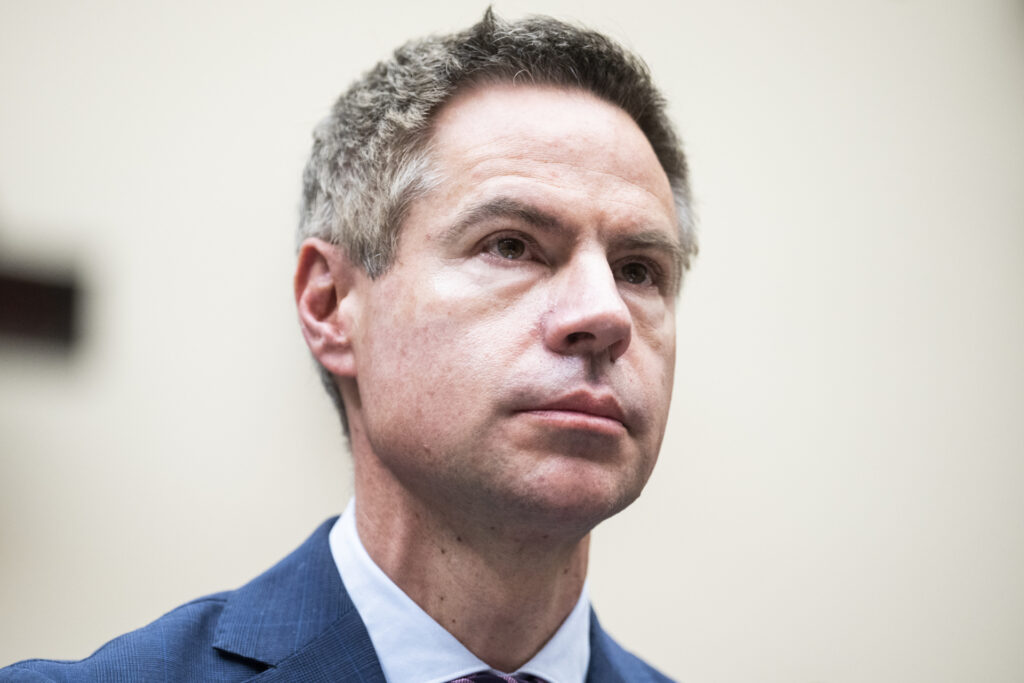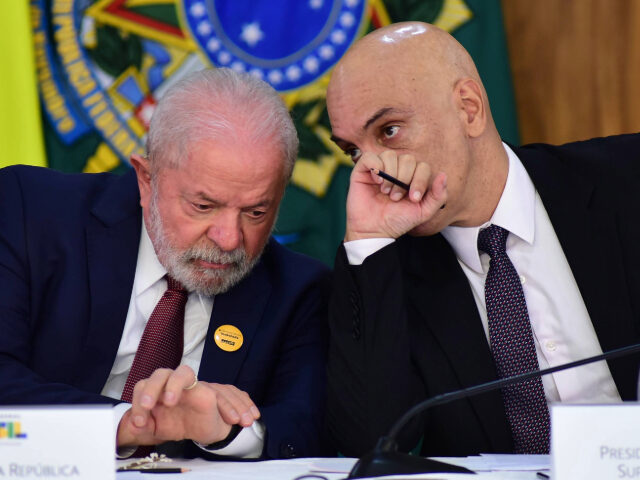The CEO of the video platform Rumble, Christopher Pavlovski, told Congress on Tuesday that his company made the “tough decision” to leave the market in Brazil due to repressive demands from the nation’s left-wing courts to censor “unpopular” opinions.
Pavlovski was among several witnesses, including censored journalists, invited to testify before the House of Representatives Foreign Affairs Committee on Tuesday on the erosion of civil rights in Brazil under radical leftist President Luiz Inácio Lula da Silva and the most powerful judge on the Brazilian Supreme Court, Alexandre de Moraes. Only one of the four individuals invited to testify defended the censorship, claiming it was necessary in light of the January 8, 2023, riot in the capital following Lula’s return to power.
On Tuesday, Pavlovski said, “Freedom of speech and freedom of expression are the cornerstones of a democratic society,” and Brazil’s challenges to these rights were “extremely troubling.”
He noted that, for years, he has seen governments ask online platforms to ban ideas they disagree with and suppress opinions that “do not fit the norm as dictated by algorithms.”
“These things are happening, and I know this personally as the CEO of a platform that receives demands from governments around the world,” Pavlovski continued.

Pavlo Gonchar/SOPA Images/LightRocket via Getty Images
The Rumble CEO told Congress that, in 2024, the video streaming platform received requests from the Brazilian government to remove certain creators from its platform. Pavlovski asserted that the content the Brazilian government denounced did not violate Rumble’s terms and conditions but “shared opinions that were ‘unpopular’ in Brazil at the time.”
“Rumble made a very tough decision not to comply with the government’s request. As with France, we chose to disable access for users in Brazil while we challenged the legality of the Supreme Court’s demands,” Pavlovski said.
The hearing was chaired by Rep. Chris Smith (R-NJ), who previously hosted a hearing in March that saw more than a dozen Brazilian lawmakers recount stories of persecution under Lula and de Moraes.
In his opening remarks, Smith stated that “since late 2022, Brazilians have been subject to grave human rights violations committed by Brazilian officials on a vast scale.”
He continued:
Documented rights violations in Brazil include the political abuse of legal procedures to persecute political opposition, including jailing opposition figures on spurious charges, violations of freedom of speech and media freedom including persecution of journalists, the silencing of opposition media, banning individuals from social media, thinly veiled censorship laws claiming to fight “disinformation,” and many violations of rule of law and judicial malfeasance.
Smith noted that Brazil had gone so far as to persecute Brazilian conservatives in America and “used Interpol red notices, social intimidation, threats of legal action and extradition, and, according, to one credible victim of transnational repression, has sought to use the FBI as a carrier or conduit to its intimidation.”
American journalist Michael Shellenberger, in his testimony, told Congress Brazil is “no longer a liberal democracy” but an “illiberal one where people fear speaking their minds for fear of punishment.”
In early April, Shellenberger published the “Twitter Files Brazil,” a series of social media posts in which he listed actions and demands from de Moraes to censor Brazilian politicians and supporters of former President Jair Bolsonaro on Twitter. Shellenberger denounced in late April that, as a result of the publication, he has been accused by the Brazilian Attorney General’s office of having committed a “probable” crime.
“And for simply exposing this fact, I find myself under criminal investigation by Brazil’s Federal Police and Attorney General,” Shellenberger told Congress.

Michael Shellenberger (Tom Williams/CQ-Roll Call, Inc via Getty Images)
“I might be less worried if Brazil were a small and irrelevant country, but it’s not. Brazil is the largest nation in Latin America,” he continued. “Therefore, its impact is global, and it risks being an example for other nations.”
Shellenberger asserted that evidence suggests the Brazilian Supreme Federal Tribunal (STF) and Superior Electoral Tribunal (TSE) courts, under de Moraes’s influence, are “directly interfering in elections by demanding the deplatforming of independent journalists and politicians on every major social media platform.”
“De Moraes is not simply demanding that social media platforms censor specific content by controversial journalists and politicians. He is demanding that all social media platforms ban them for life,” Shellenberger said. “He often does so through secret hearings without the right of appeal.”
Brazilian journalist Paulo Figueiredo, who now lives in exile in Florida, recounted during his testimony how he had been censored and deplatformed by the Brazilian government and de Moraes under his “anti-fake news” campaign:
Freedom of expression should be defended beyond political divisions. I’m not here to support conservatives but rather to defend the universal value of freedom of expression for both supporters and critics of Lula da Silva, Bolsonaro, Moraes, or any public official or public service.
Figueiredo recalled that, on December 30, 2022, at a time when he was on vacation with his family in Wisconsin, he received a call from an acquaintance that warned him that de Moraes had blocked his social media accounts under penalty of severe fines in case of non-compliance for the social media sites.
Later, through a source from the Brazilian Federal Police, Figueiredo learned that de Moraes issued an order to freeze all of his financial assets, imposed heavy fines on him, and canceled his Brazilian passport.
“There is no justification, in any ideological spectrum, for measures of this type against journalists in the so-called free world,” Figueiredo said. “This is something commonplace in Russia, China, or Cuba, but it is unprecedented in Brazil.”
Fabio de Sa e Silva, professor of Brazilian Studies at the University of Oklahoma, offered the only favorable testimony to the government, arguing that the events of January 8 in Brazil — when thousands stormed the premises of the nation’s Congress, Supreme Federal Tribunal, and the Planalto presidential palace — were the result of a “long process in which politicians, media influencers, and others, relying heavily on social media platforms, worked to discredit Brazilian electoral institutions” and Lula’s inauguration.

Supporters of Brazil’s former President Jair Bolsonaro sit in front of a line of military police inside the Planalto presidential palace after storming the official workplace of the president, in Brasilia, Brazil, on January 8, 2023. (AP Photo/Eraldo Peres, File)
Sa e Silva refuted the notion that “democracy and the rule of law in Brazil are falling apart, and the country is moving toward a censorship regime” controlled by de Moraes.
“This balancing between free speech and other rights or the public interest may well result in the removal of social media posts or the suspension of accounts if these violate legal norms,” Sa e Silva said.
The Brazilian Studies professor also appeared to suggest that Congress expressing interest in potential freedom of expression violations in Brazil could threaten America’s diplomatic interests.
“Those promoting the hearing online say explicitly that they hope this can be the first step toward more aggressive measures by the U.S. against Brazil,” Sa e Silva said.
“Decisions on whether or not to take these measures belong to this Congress and are sovereign to the United States,” he continued. “But taking these measures, in my humble opinion, would not add to a productive relationship between the two countries and would be detrimental to U.S. leadership and the country’s national interest.”
Christian K. Caruzo is a Venezuelan writer and documents life under socialism. You can follow him on Twitter here.

COMMENTS
Please let us know if you're having issues with commenting.